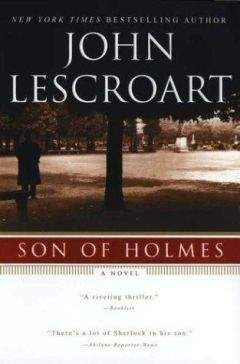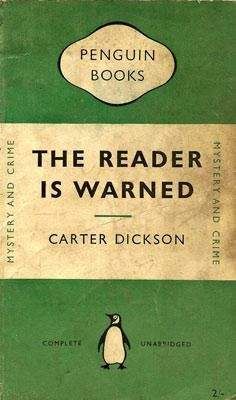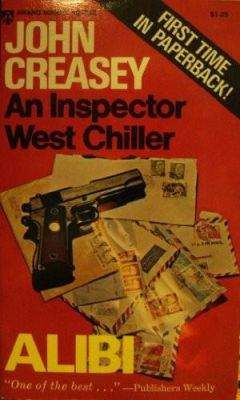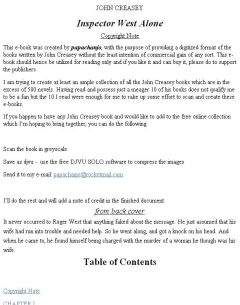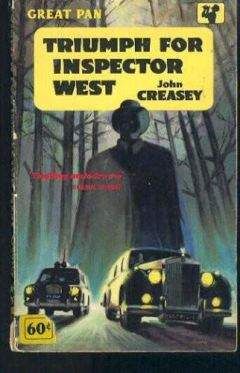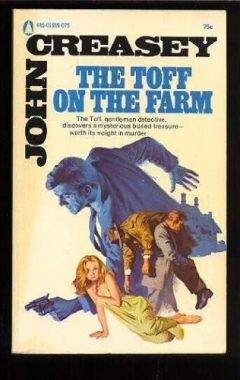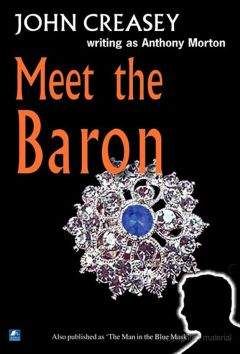John Steinbeck - Once there was a war
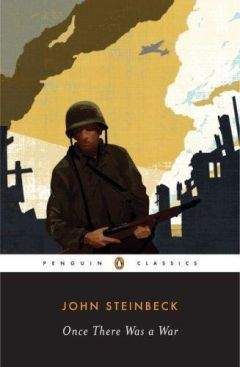
Скачивание начинается... Если скачивание не началось автоматически, пожалуйста нажмите на эту ссылку.
Жалоба
Напишите нам, и мы в срочном порядке примем меры.
Описание книги "Once there was a war"
Описание и краткое содержание "Once there was a war" читать бесплатно онлайн.
When it was dark the MTB slipped from the dock and crept out to sea toward the island. The moon was very bright and had to be taken into account. But it was thought that in the indefinite light the action would be easier to accomplish. The motors were muffled, and the small, powerful boat pushed quietly through a smooth, moonlit sea.
On the deck the rubber boat which was to take the raiders ashore was inflated and ready. The gun crew sat quietly at their stations. Just before midnight the boat lay to, and the black outline of the island was not far ahead. Then the commandos came stumbling out of the companionway and stood about on the deck. The captain of the torpedo boat said, “You have all the plans now—cut the wires, kill the guards if possible, and bring out the admiral and his lady. How long do you think that will take you?”
The leader of the commandos gave the subject his consideration, tapping his lips with his finger. “We should be back in an hour,” he said at last.
“An hour? Why, it can’t take that long. If you take that long you won’t be able to do it at all.”
“Oh, the guards business and the wires,” the commandos explained, “that won’t take long.”
“What will, then?” the captain demanded.
“Well, the admiral’s wife will need time to pack,” the commando said. “She doesn’t know we’re coming. She won’t have her things ready.” And with that they laid the rubber boat over the side and paddled silently away.
For an hour the MTB lay in the moonlight, waiting. The sailors kept close watch on the dark island and nothing happened. There were no shots, there were no lights on the blacked-out island. The whole thing was dead and quiet in the misty moonlight.
At ten minutes of the hour the captain began to look at his watch every half-minute, and he muttered to himself about E-boat patrols and the necessity for not putting his ship in danger for nonsense. If there had been any activity ashore he would at least know there was fighting of some kind.
At five minutes of the hour a big shape showed on the water, and because everything is potentially dangerous the gunners swung their machine guns on it and waited for it to identify itself. It approached, and it was a rubber boat. It gently nudged the side of the MTB and a little, slender woman was helped over the side, and then a quite stout admiral in a beautiful overcoat, although the night was warm. These figures went immediately below, but the leader of the commandos said, “Bert, you will go back with me.” Three of the men climbed aboard the MTB, and the rubber boat shoved off again and moved back toward the island.
The three remaining commandos stood limply on the deck. The MTB captain was impatient. “Accomplish the mission?” he asked.
“Yes, sir, there were eight guards, not seven.”
“You didn’t take them?”
“No, sir.”
The captain’s eyes went quickly to the long, thin knife at the man’s belt, and the commando nervously, almost apologetically, fingered its steel hilt.
“What have they gone back for?”
“The lady’s trunk, sir. We couldn’t get it in the boat. There wasn’t room with the rest of us. They’ve gone back for her trunk. Quite a large one. Old-fashioned kind with a hump on it, you know.”
The captain put his hands on his hips and studied the little man.
“Sir?” the commando began.
“Yes, I know. And I wish it was beer, but there isn’t any.”
He called softly into the companionway, “Joel, oh, Joel, get some water on. There’ll be five teas wanted in a moment.”
CAPRI
SOMEWHERE IN THE MEDITERRANEAN WAR THEATER, October 18, 1943—The day after the island of Capri was taken and before any of the admirals and generals had found it necessary to inspect the defenses of its rocky cliffs and hazardous wine cellars a group of sailors from a destroyer in the harbor strolled along one of the beautiful tree-lined paths. They were inspecting defenses too, the island’s and their own, and they found their own lacking in initiative. The hill was steep and there were gardens above and below the path.
As they strolled along a shrill little voice came from under a grape arbor below the way. “I say,” said the voice.
The naval men looked over the low wall and saw a tiny old woman—a little bit of a woman—dressed in black, who came scrambling from under the grapevines and climbed up the steps like a puppy. She was breathless.
“I hope you won’t mind,” she panted. “It was very good to hear English spoken. I am English, you know.”
She paused to let this tremendous fact sink in. She was dressed in decent and aging black. She never had made the slightest concession to Italy. Her costume would have done her honor and protected her from scandal in Finchley.
Her eyes danced with pleasure, wise, small, humorous eyes. “They speak Italian here,” she said brightly, and it was obvious that she did not if she could help it. “And the Germans came,” she said, “and I haven’t heard much English. That is why I should like just to hear you talk. I like Americans,” she explained, and you could see that she was willing to take any kind of criticism for this attitude. “I haven’t heard any English. The Germans came, but I said that, didn’t I? Well, anyway, the war came and I couldn’t get out, and that is three years, isn’t it? And do you know it has been a year since I have had a cup of tea, over a year—you will hardly believe that.”
The communications officer said, “We have tea aboard. I could bring you a packet this afternoon.”
The little woman danced from one foot to the other like a child. “N-o-o-o,” she said excitedly. “Why—what fun, what fun.”
Signals said, “Is there anything else you need, because maybe I could bring that to you too?”
For a moment the old bright eyes surveyed him, measuring him. “You couldn’t—” she began, and paused. “You couldn’t bring a little pat of—butter?”
“Sure I could,” said Signals.
“N-o-o-o,” she cried, and she began to hop like a child at hopscotch. She held up a finger. “If you’ll bring me a little pat of butter I will make some scones, real scones, and we’ll have a party. Won’t that be fun? Won’t that be fun?”
She danced with excitement. “Imagine,” she said.
“I’ll bring it this afternoon,” said Signals.
“You see, I was caught here and then the Germans came. They didn’t do me really any harm. They were just here,” she said seriously. “All of my people are in Australia. I have no family in England any more.” Her old eyes became sad without any transition. “I don’t know how they are,” she said. “I have had two letters in three years. It takes nearly a year to get a letter.”
Signals said, “If you will write a letter I’ll pick it up when I bring the butter and tea and will mail it at the first port.”
She looked at him sternly. “And how long will that take to get to Australia?” she demanded.
“Oh, I don’t know. A few weeks.”
“N-o-o-o,” she cried, and she began to dance again, little dainty dancing steps, with her arms held slightly out from her sides and her wrists bent down. Her shrill little bird voice laughed and her pale old eyes were wet. “Why,” she cried. “Why, that will be more fun than tea.”
SEA WARFARE
SOMEWHERE IN THE MEDITERRANEAN WAR THEATER, October 19, 1943—The plans for Task Force X were nearly complete. The officers had coffee in a restaurant in a North African city. The tall, nervous one, a lieutenant commander and a student of mines—contact, magnetic, and those vibration mines which react to the engine of a ship—leaned over the table.
“I conceive naval warfare to be much like chamber music,” he said. “Thirty-caliber machine guns, those are the violins, the fifties are the violas, six-inch guns are perfect cellos.”
He looked a little sad. “I’ve never had sixteen-inch guns to compose with. I have never had any bass.” He leaned back in his chair. “The composition—the tactics of chamber music—are much the same as a well-conceived and planned naval engagement. Destroyers out, why, that will be the statement of theme, the screening attack, and all preparing for the great statement of the battleships.” He leaned back farther and tipped his chair against the wall and hooked his heels over the lower rung.
A lieutenant (j.g.) laughed. “He always talks like that. If he didn’t know so much about mines we would think he was crazy.”
“You haven’t been in battle, in a good naval engagement, and you don’t know anything about chamber music,” said the lieutenant commander. “I’ll show you something tonight if you’ll go with me.”
The jeep moved through the blackout. The streets of the city were fined with military trucks and heavy equipment, all moving toward the harbor where the ships were loading for Italy. The jeep, running counter to the traffic, climbed the hill and went over the ridge and into the valley on the other side, into a valley which had at one time been a place of vineyards and small country houses. But now it was a vast storage ground for shells and trucks and tanks, lined and stacked and parked, waiting to get aboard the ships for Italy. The moon lighted the masses of material getting ready for war.
“Where are you taking us?” the lieutenant asked.
“You’ll see. Just be patient.”
The jeep pulled up to a very white wall that extended off into the distance and disappeared into the pearly in-definiteness of the moonlight. A high gate of iron bars and spikes opened in the wall. The lieutenant commander went to the gate and pulled a rope that hung there, and a small bell called softly. In a moment a white-robed figure appeared at the gate, a tall man with a long, dark beard.
“Yes?” he asked softly.
“May we come in?” the lieutenant commander asked. “May we come in for evensong?”
“Yes. of course,” the brother said. He pulled at one side of the gate and the hinges cried a little.
Inside the wall was a lovely garden in the moonlight. No war material at all. Everything was cut out except flowers and the little sound of running water and the thick outline of a sturdy church against a luminous sky. The lieutenant (j.g.) said, “You speak very good English.”
“I should,” said the brother. “I was born in Massachusetts.”
“American?”
“We come from all over. We have Germans and French, and even a Chinese. Some Russians, too.”
The party moved slowly up the path and came to the little fountain which made the dripping sound and put a cool emphasis on a hot night. “The song has already started,” the brother said. “Walk quietly.”
The way went among the walls of flowering shrubs and then up two outside steps, and then into a dark hallway, and finally through an entrance into a place that was familiar and strange. Over the rail and below was the body of the church, only you could not see it, for only one candle was burning, and it merely suggested the size and height. It picked out a corner and an arch and a point of gold, and your mind filled in the rest. Lined below, just visible, were the rows of the white brothers. And then their voices came softly and swelling, singing the ancient music, the disembodied and unimpassioned music, of which Mozart said he would rather have written one chant than all his own. The evensong rose higher and higher, and it was rather like the dimness of the arched roof overhead. The great, vague room swelled and pulsed with the sound, and then it died and one single voice took it up and the others joined in and the candle flame darted about on its wick.
The sound of the trucks and the half-tracks and the pound of the tanks came vaguely from the distance and the music rose to a high note and stopped. The lines of white figures filed slowly out and a hand came into the candlelight and pinched out the flame.
The jeep went back into the city, and this time it went very slowly because it was caught between a weapons carrier and a troop truck loaded with sleepy, upright soldiers who swayed when the truck struck a rough stretch of street.
The lieutenant (j.g.) was very quiet. Some paradox worried him. He said, “The change from one thing to another was too quick. There was no time to get used to it. You should have time to get used to things like that.”
“There was actually no change,” the lieutenant commander said. “I’ve always thought that naval warfare was composed like chamber music. There wasn’t any change. You just saw two sides of the same thing. You can’t make islands of experiences. They relate just exactly as the strings relate in a quartet. Maybe you’ll see in a day or two when we get into action. You haven’t been in action, have you?”
THE WORRIED BARTENDER
SOMEWHERE IN THE MEDITERRANEAN WAR THEATER, October 20, 1943—When our small American force had captured the island of Capri with no resistance whatsoever on its part or on ours, it was only natural that sooner or later we should meet Luigi the bartender. Luigi had kept warm during the whole war a love of Americans based, he freely admitted, on a memory of tips in the nicer days when American tourists came to bathe in the Blue Grotto and the pink wine. When sailors and officers from the little force inspected the defenses of Luigi’s bar and found them formidable. Luigi was cordial but sad. He spoke the English we know, the English of the banana pushcarts and the pizzerias, of the spaghetti joints and grind organs. Luigi’s dialect sounded like home.
Luigi was gay but sad. His joy had a habit of falling off in the middle and dissipating. One afternoon, after each one of us had tried to remember a man named Giuseppe Marinari, of Gary, Indiana, who was Luigi’s third cousin, we inquired into his sadness. And only then did his trouble come out with a rush.
It seemed that Luigi had a daughter and, more than that, he had an incipient grandchild. But this daughter and this expectation were across the little stretch of water in Castellammare. And what was worse, the Germans were moving up on Castellammare and we were not there in enough force either to repel or to intercept them. Consequently it seemed that Luigi’s daughter was very likely to have her child in a shell hole, illuminated by star shells and parachute flares and possibly speeded up by bomb bursts. Luigi was worried and upset because, he explained, it was not as though he had other daughters or grandchildren. This was his sole chick, due to some misfortune or deformity, the reason for which was known only to God. And as Luigi poured out his story he also poured out Scotch whisky that had been buried in the earth in back of his bar ever since the war started.
Going back to the ship, the little group could not lose the sadness that Luigi had planted in it. “How would you like it to happen to your family?” Lieutenant Blank said. “Why, you can look across to Castellammare.”
On this basis the group visited the commodore in the wardroom of his flagship. They told their story and the commodore looked gravely over his coffee cup at them. And his very calm blue eyes got bright with amusement. “What do you want me to do,” he asked, “attack Castellammare?”
Подписывайтесь на наши страницы в социальных сетях.
Будьте в курсе последних книжных новинок, комментируйте, обсуждайте. Мы ждём Вас!
Похожие книги на "Once there was a war"
Книги похожие на "Once there was a war" читать онлайн или скачать бесплатно полные версии.
Мы рекомендуем Вам зарегистрироваться либо войти на сайт под своим именем.
Отзывы о "John Steinbeck - Once there was a war"
Отзывы читателей о книге "Once there was a war", комментарии и мнения людей о произведении.





